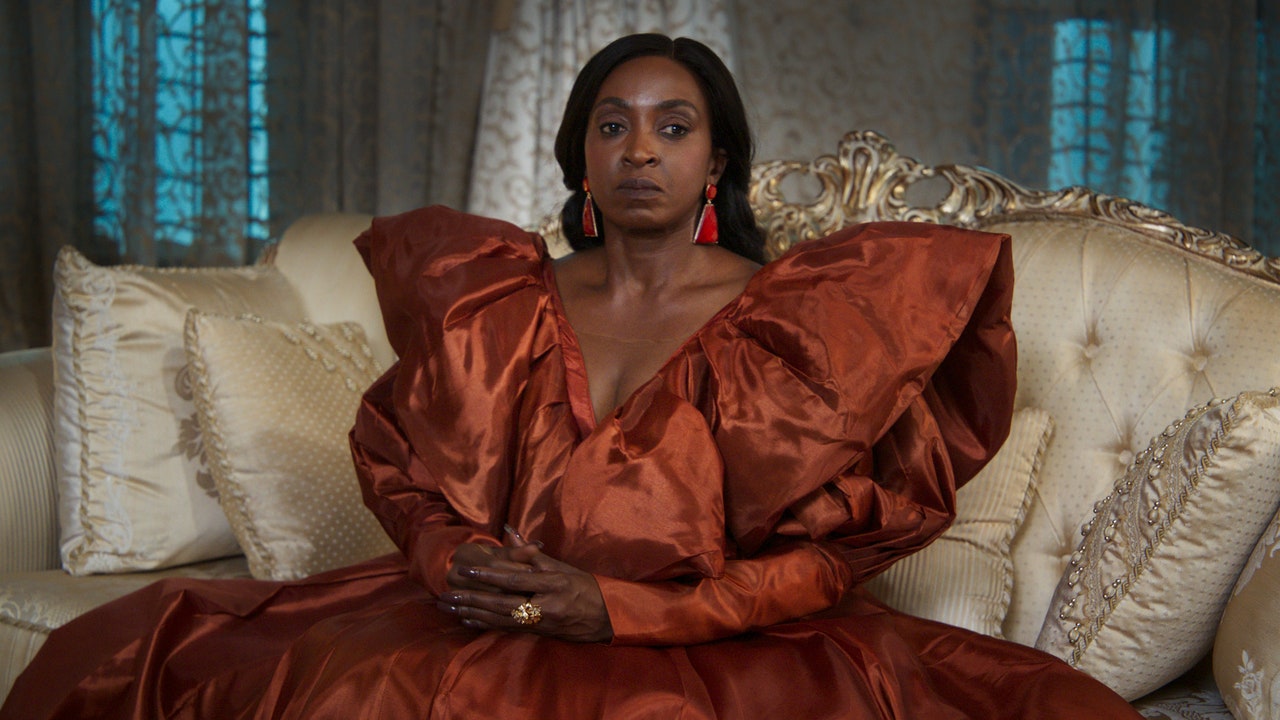Executive Produced by media mogul Mo Abudu and co-directed by legendary Nigerian filmmakers Biyi Bandele and Kenneth Gyang. blood sisters is an expertly constructed story told in six breathtaking episodes. While each episode offers moments of tenderness and calm, it’s packed with upheaval and what seems like a failed attempt to resolve them. The series follows two friends Sarah (Ini Dima-Okojie) and Kemi (Nancy Isime) who are on the run after the murder of Sarah’s abusive groom-to-be. The murder comes on the day of Sarah’s induction ceremony, a traditional Nigerian wedding tradition where families of newlyweds are formally introduced to each other. The show unveils devastating mysteries in the characters’ lives, the rot in the Nigerian police system, and most importantly, the role institutions and even family members play in enabling domestic violence. What is incredibly intriguing about this series, which I believe makes it one of the most important pieces of media to come out of Nollywood in recent years, is its refusal to create characters with binary moral compasses as is typical of Nollywood. Characters who are seemingly good and whose lives are uncomplicated enough to help the filmmakers create a sharp contrast between good and evil. No, you won’t find that blood sisters.
Historically, Nigerian cinema has relied on telling didactic stories as its main selling point. Nigerian filmmakers have always built narratives steeped in the need, and often crippled, to draw a moral arc, a clear demarcation between good and evil, the morally bankrupt and the upright. And when you consider the religious and deeply conservative influences behind these moral concepts, these films seem rather doctoral misogynistic, homophobic or sexist ideals. in the blood sisters, the filmmakers refuse to moralize or portray anyone as inherently good or bad, while taking a firm stance against domestic violence and presenting a darker, even more nuanced view of it. The result is incredibly compelling work.
When the series launched, the hashtag #BloodSisters was trending on Twitter for weeks, generating 32,633 tweets between May 4th and May 21st. “When you watch blood sisters, see the entire economic gap of Nigeria. You see the rich, you see the poor. Our reality is that this exists in every society and it is important for people to understand and see this. To see the rich live like this and the poor live like this,” said executive producer Mo Abudu in a recent interview With Digital Spy. “What you often get is a one-sided view of Africa when our stories are told, but we have to take a holistic view. [We need to] Understand that yes, this is a storytelling that depicts some of the ills in the world, but it means saying that Africa is not excluded from it. We can tell these really compelling and compelling stories.”
Courtesy of Netflix Nigeria
